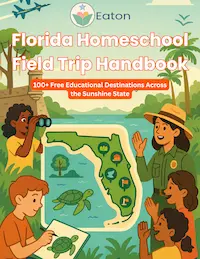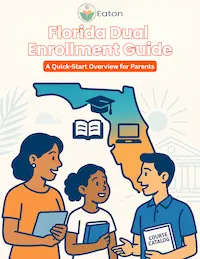Tim Teabow Act: A Guide to Homeschooling Legislation
If you’re a homeschooling parent, you’ve likely heard the term “Tim Teabow Act” floating around in homeschool forums or news articles. But what is the Tim Teabow Act exactly, and how does it affect homeschoolers? In short, this legislation—commonly referred to by Tim Tebow’s name—aims to give homeschooled students access to public school extracurriculars, including sports, within their local school districts.
Tim Tebow, a famous NFL athlete and Heisman Trophy winner, was homeschooled himself and played high school football at a public school in Florida. This set a precedent for homeschool participation in public school sports, inspiring many states to propose or pass similar acts. Below, we’ll dive into the history, the benefits for homeschoolers, and the practical steps to take if your state has a Tim Teabow Act or a comparable policy.
1. The Origins of the Tim Teabow Act
Tim Tebow grew up in a homeschooling family in Florida—arguably one of the most homeschool-friendly states. During his high school years, he played football at Allen D. Nease High School, a public school, despite being homeschooled. In Florida, this was allowed under a specific policy that permitted homeschool students to participate in public school athletics if they met certain academic standards and registration requirements.
As Tebow’s athletic career skyrocketed at the University of Florida and later in the NFL, his story inspired lawmakers in other states to consider similar legislation. Thus, the “Tim Tebow Act” name emerged as a shorthand for bills aimed at granting homeschooled students equal access to public school sports and extracurricular activities.
If you’re based in Florida and need a refresher on how homeschooling works there, check out our comprehensive guide:
Homeschool Florida: Your Ultimate How-To Guide.
2. What Is the Tim Teabow Act?
So, what is the Tim Teabow Act in a legal sense? Generally, legislation carrying this name (or a variation of it) ensures:
- Equal Access to Public School Activities: Homeschooled students can join sports teams, marching bands, drama clubs, and other extracurriculars at their local public schools.
- Academic Eligibility: Homeschoolers must meet certain academic guidelines—often the same standard public school students must meet (like a minimum GPA or attendance record).
- Registration Requirements: Parents may need to file specific paperwork with their local school district, documenting that their child meets eligibility standards.
It’s important to note that not every state calls this type of bill the “Tim Tebow Act,” and not every state has passed it. Some states have partial versions, granting access only to certain activities, while others prohibit homeschoolers from participating in public school programs. Always check your state’s regulations or consult an organization like the Home School Legal Defense Association (HSLDA) to confirm what’s allowed where you live.

3. Why the Tim Teabow Act Matters to Homeschooling Families
3.1 Expanding Opportunities
For many homeschooling families, one of the biggest trade-offs is missing out on the robust extracurricular offerings that public schools provide—especially competitive sports. The Tim Teabow homeschooling option can bridge this gap, letting students enjoy the benefits of team sports or specialized clubs without sacrificing the flexibility of home-based education.
3.2 Social and Emotional Benefits
Participating in public school activities can also give homeschoolers valuable social experiences. They’ll meet peers from different backgrounds and develop teamwork, leadership, and communication skills—all crucial for future success.
3.3 Skill Development
Sports and clubs aren’t just about fun. They often foster discipline, time management, and the ability to handle pressure—key life skills that complement academic learning at home. If your child dreams of an athletic scholarship or a career in a specific field, public school programs can provide advanced training and resources.
For more on balancing academics with extracurriculars, see our article on Best Homeschool Schedule: How Many Hours Does It Take?.
4. Potential Challenges and Considerations
Even if your state has a Tim Teabow Act, there may be practical hurdles:
- Travel and Logistics: You’ll have to manage transportation to and from practices or meetings, which can be time-consuming.
- Academic Verification: Schools often require homeschoolers to show proof of educational progress or grades. Make sure you keep good records.
- State-Specific Rules: Some states only allow partial participation. For example, your child might join a sports team but can’t take part in certain other extracurriculars.
- Competition for Spots: If a public school program has limited capacity, there could be fierce competition—your child may not be guaranteed a spot.
If your child is aiming for a collegiate future (athletic or academic), don’t miss our tips on navigating higher education:
Homeschool College Acceptance Rates: A Parent-Friendly Guide.
5. Tips for Parents in Tim Teabow Homeschooling States
5.1 Know Your Rights and Responsibilities
Familiarize yourself with local laws. Whether your state calls it the Tim Tebow Act or something else, read the exact requirements for participation—like academic eligibility and deadlines for registration. For guidance on meeting homeschool regulations, take a look at our post: Homeschool Requirements in Florida: A Practical How-To Guide.
5.2 Keep Detailed Records
Stay on top of your child’s grades, test scores, or portfolios. Many public schools will ask for some sort of academic documentation to ensure your child meets the same standards as traditional students.
5.3 Maintain Open Communication with Coaches and Teachers
If your child is involved in a sport, band, or club, it helps to regularly check in with the coach or teacher. Share updates on your child’s academic progress, and make sure you’re aware of practice schedules, game days, or performances.
5.4 Prepare Financially
Some extracurriculars or sports come with fees (uniforms, equipment, travel). Budget accordingly. If you need financial assistance, you might look into educational scholarships. Learn more in:
How to Get a Step Up Scholarship for Florida Homeschoolers.
6. What If Your State Doesn’t Have a Tim Tebow Act?
If your state hasn’t passed legislation granting homeschoolers access to public school sports, don’t lose hope. There may still be ways to get involved:
- Private Sports Leagues: Local or regional youth sports leagues might offer a level of competition comparable to public school teams.
- Homeschool Co-Ops: Some large homeschool groups organize their own athletic teams, arts programs, or science clubs.
- Community Centers: Check local recreation centers for seasonal sports or clubs that welcome all residents.
Even if your local public schools aren’t open to homeschoolers yet, you can still find plenty of enriching extracurricular opportunities for your child.
7. Considering Tim Teabow Homeschooling? Next Steps
If you’re eager to blend the best of both worlds—homeschool academics and public school activities—start by investigating whether your state has a Tim Tebow Act in place or a similar statute. From there:
- Talk to Local Officials: Contact your district’s athletic director or principal.
- Gather Paperwork: Have any required transcripts, test scores, or attendance records ready.
- Get Involved: Encourage your child to attend team meetings or tryouts so they can meet potential coaches and teammates.
8. Ready to Strengthen Your Homeschool Program?
While sports and extracurriculars are great, you’ll also want a strong academic foundation. If you’re looking to enhance your child’s education with structured online support, we can help:
Online classes can supplement your home-based curriculum and free you up to manage the additional responsibilities that come with Tim Teabow Act participation.

9. Final Thoughts on the Tim Teabow Act
So, what is the Tim Teabow Act? At its core, it’s legislation that aims to level the playing field—literally—by allowing homeschooled students to join public school activities. For many families, this is a huge win, opening doors to competitive sports, music programs, and other extracurriculars without sacrificing the flexibility of homeschool life.
If you live in a Tim Tebow homeschooling state, take advantage of the opportunities—but remember to stay organized, meet the required academic standards, and communicate with local school officials. Even if you’re not in a state with this legislation, plenty of alternatives exist through private leagues, co-ops, and community-based programs.
Whatever your path, the key is to keep your child’s overall growth—academically, socially, and physically—at the heart of every decision. With a bit of research, cooperation, and planning, you can craft a well-rounded educational experience that includes the best of both homeschooling and public school extracurriculars. Good luck, and enjoy the journey!



